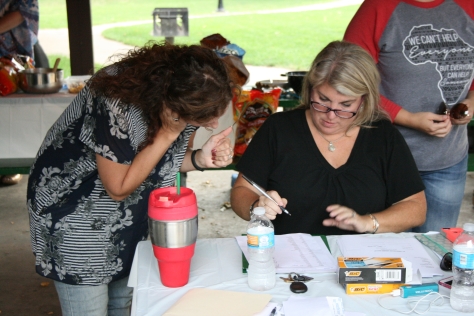Nothing that a person owns that has been devoted to destruction for the Lord, be it human or animal, or inherited landholding, may be sold or redeemed; every devoted thing is most holy to the Lord.
Leviticus 27:28 (NRSV)
Today we wind down our journey through the ancient laws of Leviticus. The final chapter is the ancient Hebrews’ rules as it related to charitable giving above and beyond the regular sacrifices already covered. The ancient Hebrews could dedicate items, even servants or children, to God’s work at the tabernacle (the giant tent which served as nomadic temple) and later the temple that took its place.
For example, in the first chapter of 1 Samuel, Hannah gives birth to little Samuel and dedicates the boy to the Lord. She gives Samuel to the temple for the work of the Lord. In ancient days this would have been a precious gift, not only from an emotional point-of-view, but also from a financial standpoint. The culture of that day attached great worth to boys as they would grow to become warriors, hunters, merchants, and providers. Hannah could have considered Samuel to be security for her retirement, a son who would care for her and provide for her in her old age. Yet she gave her “one and only son” to God.
So, let’s say that a few years later Hannah’s husband kicks the bucket and leaves her destitute. She has second thoughts about giving Samuel to the work of the temple and returns with “givers remorse.” She asks for the boy back. According to the code of Levitical law in today’s chapter, such a “redemption” could be made. Depending on Samuel’s age at the time of redemption, Hannah would have to pay the redemption fee. In many cases, depending on what gift was being redeemed, a 20 percent redemption tax was added.
Then there were items that could never be redeemed. If a foreign idol had been taken as plunder during a battle of conquest, that idol was “devoted to destruction” and had to be destroyed. The person who plundered it had to give it to the priests to be destroyed and couldn’t redeem it. That’s why, in the story of Joshua, a man named Achan got into such trouble. He took plundered idols for himself and didn’t give them over for destruction. That was “against the law” and Achan paid the penalty for it.
This morning my mind is mulling over many things. I’m kind of glad this journey through Leviticus is over. It’s definitely not “feel good” devotional material that pumps my heart full of inspiration at the start of the day. I confess I’m ready to move on. At the same time, I’m thankful for the layers of depth that Leviticus provides to other events and sections of God’s Message. The stories of Samuel, and of Achan, have new layers of understanding for me now.
As I think about summing things up, Leviticus reminds me that God is a God of order, despite our human penchant for making a chaotic mess of life and creation. Leviticus beckons me to seek the Creator’s natural order when life and relationships are in chaos. And, for me, that’s a worthwhile reminder.









































